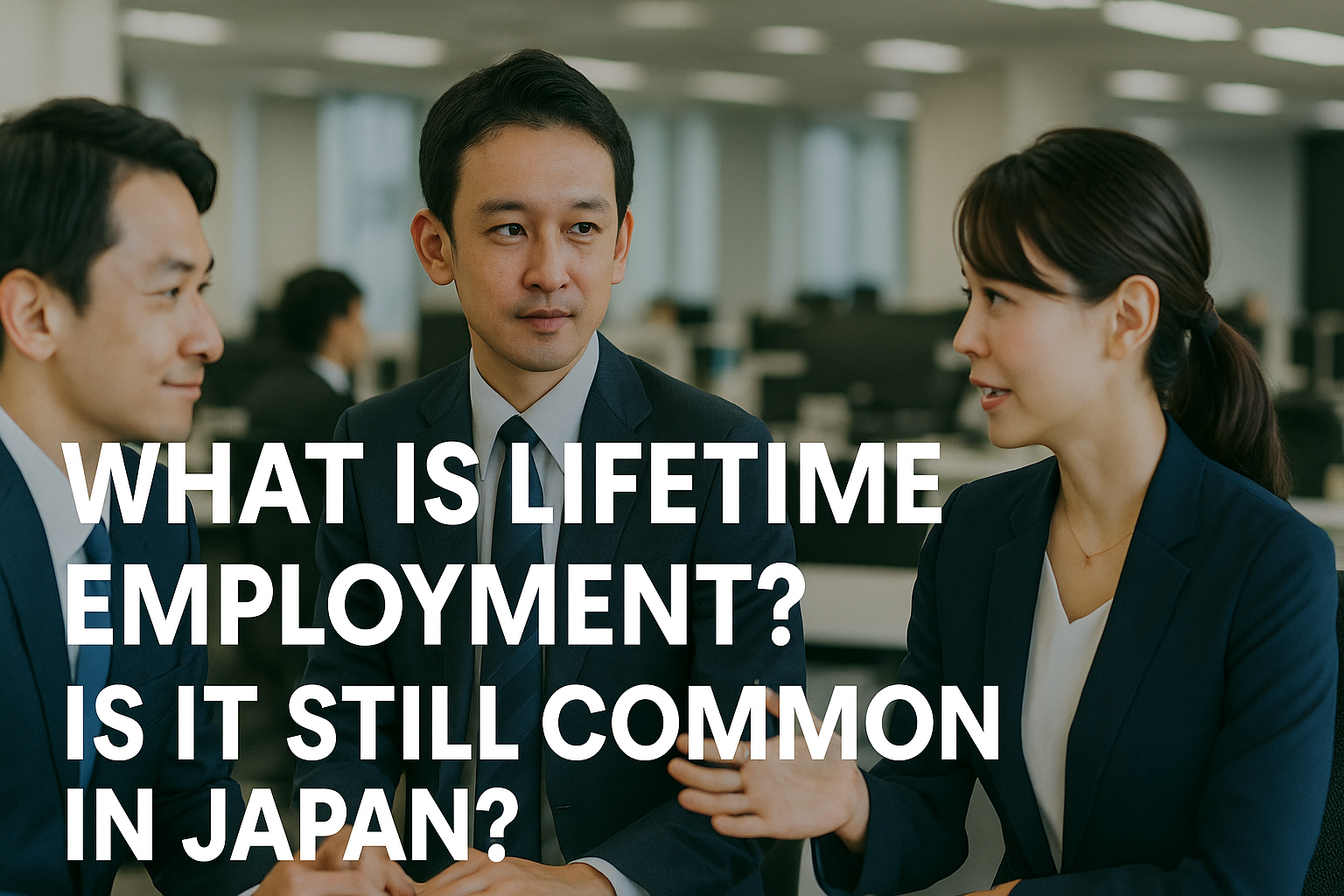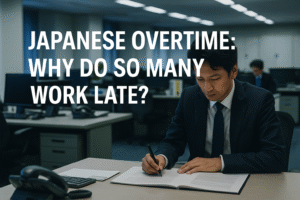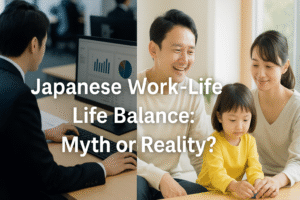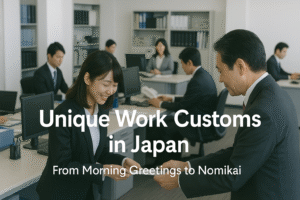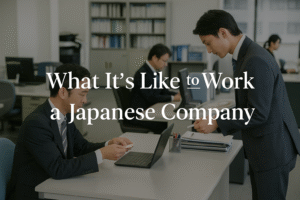If you’ve heard that Japanese workers stay with the same company their whole lives, you’re not wrong — but things are changing. Let’s explore the concept of lifetime employment (shūshin koyō) in Japan, how it shaped society, and whether it still holds up today.
🕰️ The Origins of Lifetime Employment
Lifetime employment became popular after World War II, when Japan needed economic stability. Companies promised job security and steady income in exchange for loyalty and hard work. In return, workers often stayed with the same company until retirement — sometimes 40+ years!
🏢 How It Works
Under this system, employees would usually join a company straight out of school or university. Promotions and salary increases were based more on seniority than performance. Job-hopping was considered risky and even disloyal.
🤝 Mutual Loyalty: The Traditional Deal
It was a kind of unwritten agreement:
- The employee gives their loyalty, long hours, and dedication.
- The company provides job security, steady raises, and a generous retirement plan.
This system built tight-knit office communities and a strong sense of stability — for both sides.
🚨 So… Is It Still Common?
Not really. While some large, traditional companies still value lifetime employment, many modern companies are moving away from it. Here’s why:
- Economic pressure: Companies can no longer afford to guarantee jobs for decades.
- Changing values: Younger generations want flexibility, work-life balance, and faster career growth.
- Global influence: As Japan’s economy becomes more globalized, Western-style job mobility is increasing.
Today, it’s not unusual for younger workers to change jobs every few years — something unthinkable in the past.
🔄 The Rise of Mid-Career Hiring
In the past, mid-career hiring (chūto saiyō) was rare. But now, it’s growing. More people are switching companies to find better roles, higher salaries, or more fulfilling work.
Companies are also hiring freelancers, part-timers, and contract workers more than ever before — creating a more flexible, but also less stable, job market.
💬 Final Thoughts
Lifetime employment helped shape Japan’s economic miracle and workplace culture, but it’s no longer the rule. While some traditions remain, the modern Japanese workforce is becoming more diverse, mobile, and flexible.
So, is lifetime employment still common in Japan? Not really — but understanding it helps you understand how Japan’s unique work culture came to be.
